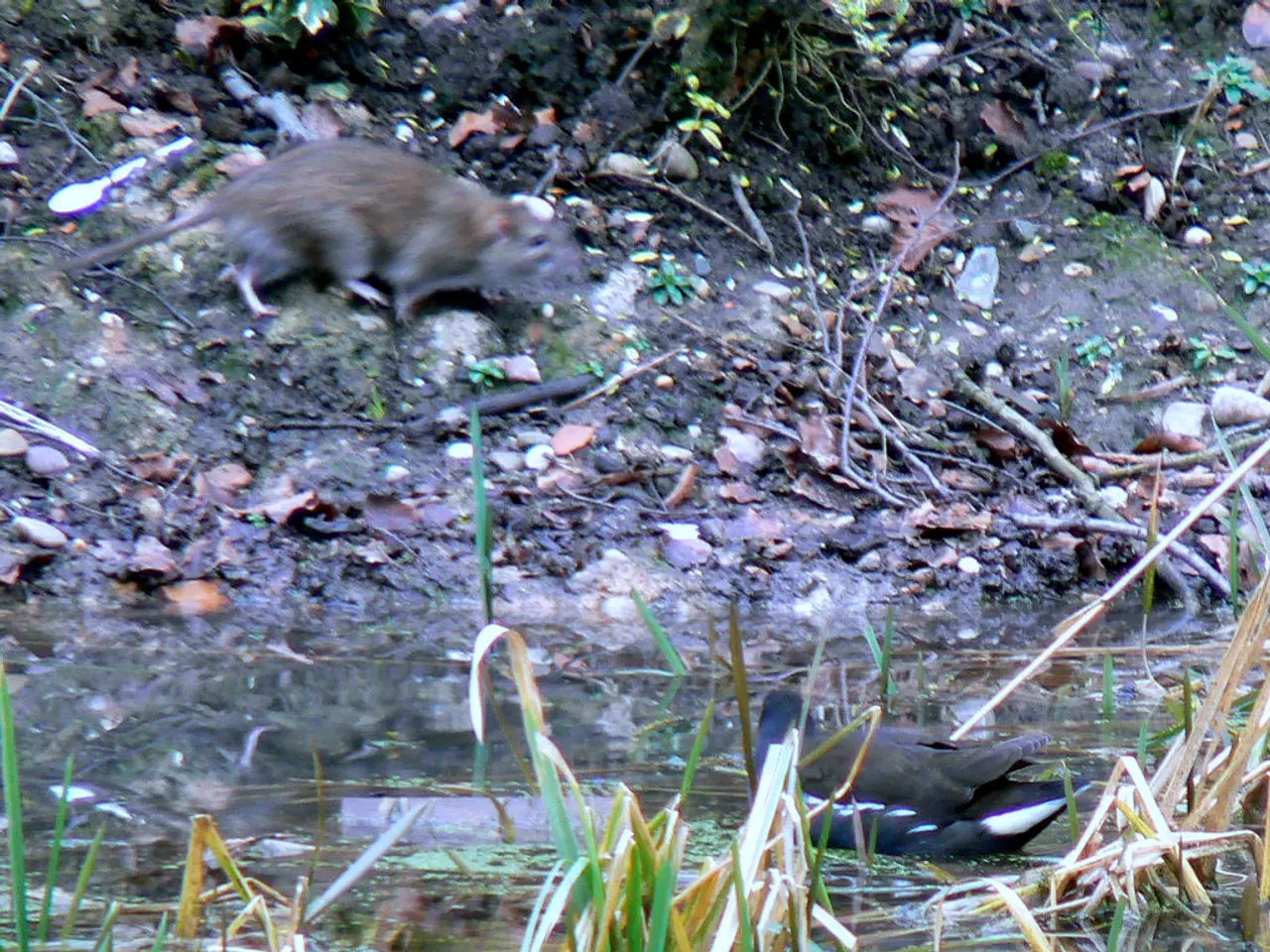Backyard Pest Problem: How to ward off rats attracted by bird feeders
In the pursuit of enjoying the beauty of birds in one's backyard, bird feeders can often become an attractive spot for unwanted visitors – rats. Here's a guide on how to deter these pests and maintain a safe and enjoyable bird-watching experience.
Firstly, let's discuss the tools that can help. A bird feeder baffle, available on Songbird Essentials on Amazon, can prevent rats from climbing up the pole or shepherd's crook of a bird feeder. Additionally, a lightweight mesh seed catcher, also found on Amazon, can be installed below a bird feeder to collect fallen seeds, making it less attractive to rats.
For those seeking a no-spill option, both a no-spill bird feeder and a mesh seed catcher are available on Amazon. These products reduce the amount of seeds that fall to the ground, thereby decreasing the attractiveness to rats.
When it comes to the seed itself, opt for bird seed treated with hot chili pepper oil. This option, such as the one from Wild Delight available on Amazon, deters rats and other rodents while not affecting birds.
Good sanitation practices are essential in managing rat issues. Emptying the seed catcher regularly is important to prevent it from becoming enticing to rats and other rodents.
It's also crucial to keep bird feeders 8-10 feet away from trees, shrubs, and structures to prevent rats from jumping on to them. Combining good sanitation practices with rat deterrents will greatly reduce the likelihood of a bird feeder attracting rats.
Remember, rats are omnivorous rodents that live near humans and can infest areas with easy access to food and shelter. They are attracted to your bird feeder box because it provides easy access to food, especially seeds and grains, which serve as a convenient and rich food source for them.
Rat control in city gardens is common, but rats can also be a problem in suburban gardens. Two common types of rats that might be encountered around bird feeders are Norway rats and black rats. Norway rats, also called brown rats or common rats, are widespread and found in all 50 states, with bodies up to 11 inches long and shorter tails. Black rats, also called roof rats or ship rats, originated in the Indian subcontinent and have bodies 5 to 7 inches long with longer tails.
While it's important to manage rat issues, it's also worth noting the benefits of bird feeders. Birdsong is associated with reduced symptoms of depression and anxiety, boosted cognitive performance, and improved wellbeing. Bird feeders attract various wild birds to one's yard, providing a wildlife experience.
By implementing these strategies, you can enjoy the company of birds in your backyard without the unwanted presence of rats. Happy bird-watching!








